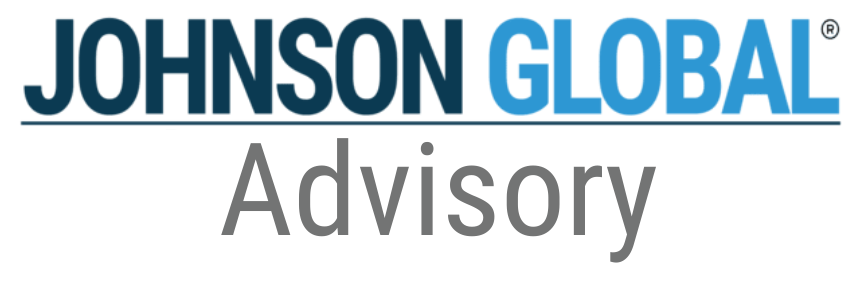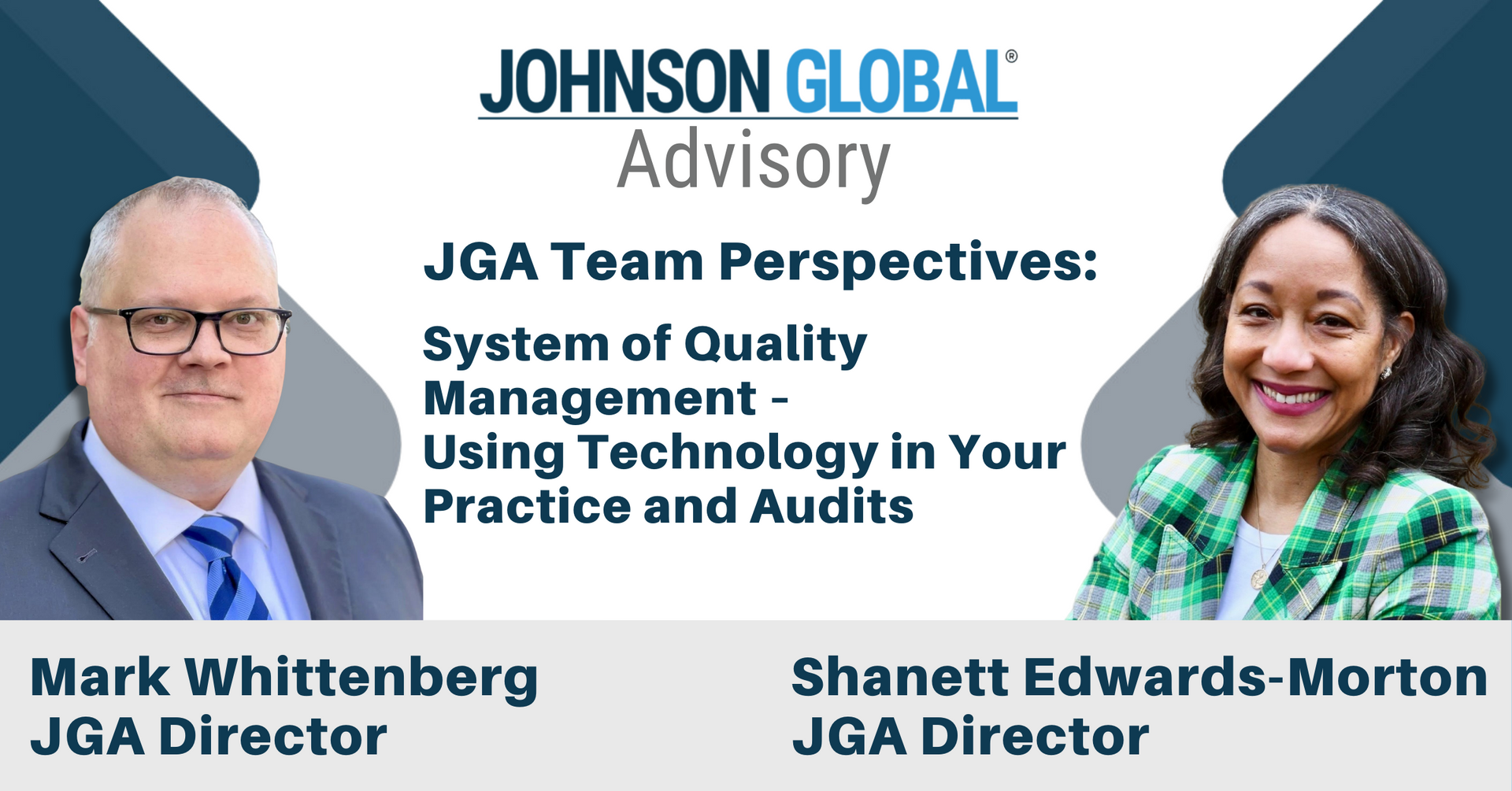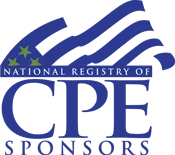JGA Team Perspectives: System of Quality Management – Using Technology in Your Practice and Audits
Editor’s note: This article is part of a series to highlight the unique experience that JGA professionals possess and deliver to our clients.
The implementation of systems of quality management is a recent focus area of standard-setters and has become a high priority for firms of all sizes. International Standard on Quality Management (ISQM) 1 requires all firms that perform engagements under the IAASB’s international standards to have systems of quality management designed and implemented by December 15, 2022. The AICPA’s Statement on Quality Management Standards (SQMS) No. 1 requires systems of quality management to be designed and implemented by December 15, 2025, with required evaluation of the system within one year following that date. On May 13, the PCAOB approved QC 1000, A Firm’s System of Quality Control and Other Amendments to PCAOB Standards, Rules and Forms, which would replace current PCAOB quality control standards in their entirety. The standard is undergoing review by the SEC. It will apply to all PCAOB-registered firms and will be effective December 15, 2025. It will require firms to identify their specific risks and design a quality control system that includes policies and procedures to guard against those risks, with mandatory annual reporting by the firms.
To manage the implementation journey, every firm should develop a roadmap that incorporates existing policies, processes and procedures as well as the need for additional or newly designed policies, processes and procedures. Throughout the remainder of this article, Mark Whittenberg and Shanett Edwards-Morton share their thoughts and recommendations on how technology should be incorporated within the firm’s system of quality management, in order to drive, monitor and maintain audit quality. This includes technology that is used to support engagement teams as well as technology used in the firm’s operations.
Technology for Audits and Quality Management
While compliance is often the driver when implementing quality control standards, there is strategic value for firms to look at their internal processes for getting audits done and the technology tools and software they use and make improvements that can benefit overall quality management. There is already a rapid change in use of technology in audits, and clients are expecting firms to use technology to enhance efficiency and provide more meaningful insights. Firms should have a plan to incorporate technology into both their engagements and their system of quality management.
“Outside the Big 4, firms used to have a handful of software tools they used for audits, but now there is increased investment and rapid development of new applications and more advanced technology,” Whittenberg said. “Firms that don’t use technology for their audits will be at a competitive disadvantage, and it takes time and resources to implement technological changes.”
Technology and the System of Quality Management
In evaluating technologies and automated tools (i.e., technology resources) related to a firm’s system of quality management (SQM), it is important to consider the overall SQM framework, including the risk assessment process component, the monitoring and remediation process component, and the other components (governance and leadership, relevant ethical requirements, acceptance and continuance, engagement performance, resources, information and communication). Categories of technology resources include those:
- Related to the design, implementation, and operation of the firm’s SQM – for example to: monitor personnel independence and ethics violations, track personnel time and assess workload, retain and maintain engagement related documentation, and record the firm’s considerations around client acceptance and continuance;
- Used by engagement teams in performing the engagement – for example: audit software and automated tools used on an engagement to prepare and compile documentation, and tools and software for firm methodology and policies; and
- Used to ensure effective operation of IT applications – for example: operating systems and databases, hardware, and logical access.
When seeking technology solutions for quality management, it is important to first identify the pain points and needs. “Vendor demonstrations at conferences are catchy, but firms frequently buy the software and then say, ‘Now what?’ if they do not have a use case, have not thought about how to apply it to their clients and firm’s specific needs, or do not have the necessary data available,” Whittenberg said.
“Firms may have technology that supports their SQM, but they also must have technology tools to help them manage their workflows and components in order to evaluate their overall SQM,” Edwards-Morton said. “It is critical that firms ensure technology is addressed during each step of the SQM implementation process, and that the right technology is deployed for the risks identified.” Firms may attempt to use existing audit software tools that were not designed for this evaluation and for ongoing monitoring and remediation.
Firm Operational Monitoring Tools
Technologies can drive consistency in firm operations, which impacts quality management. “Firms often use a lot of manual monitoring of their operations, but as they see other firms adopting technology in this area, they are looking into applications, so they do not get left behind,” Edwards-Morton said.
Common examples are firms using Excel spreadsheets or Word checklists for engagement acceptance and continuance procedures, independence compliance, and training and tracking CPE. “Technology can look at firm data in more depth and in less time, identify conflicts and risks, and generate evidence that responsive actions were performed, and effectiveness was tested, which is required by the standards,” Whittenberg said.
A number of vendors provide operational monitoring tools in areas of risk assessment, ethics and independence, and human resource management and scheduling. Solutions are available to address specific problems and are easier to integrate today. “Cloud-based software permits firms to ramp up quickly without a lot of configuration and to interface with firm software and connect different systems to obtain better insights and monitoring,” Whittenberg said.
The new standards require an analysis of the root cause of QC deficiencies t which can be difficult to perform when the data is contained in multiple databases. Cloud-based software can manage data and provide connections to issues that are spread across the firm but contribute to quality risks.
Engagement Team Specific Monitoring Tools
These are the tools used to perform certain audit procedures, including project management, data analytics, audit documentation, and other solution-specific tools. “These tools are where firms get the biggest bang for their buck, and they are important for client-facing activities,” Whittenberg said. Use of technology in this area can impact team engagement performance and quality. Examples include DataSnipper, that can read financial statements or SOC reports, identify key information auditors need, and auditors can review the information then copy and paste it into audit workpapers.
Best Practices in Implementing Technology Tools and Software
There are different stages in a software audit tool maturity model, ranging from basic audit documentation software to advanced tools for data analytics and visualization.
It is important for firms to assess where they are and have a plan in place. Not all firms need the most advanced solutions, but it is important to anticipate both current and future needs. Firms should start with a use case that identifies the problems to be solved and the software or other solutions that may address their needs. In developing software tools, we recommend a multistep approach that begins with taking a software inventory of tools in use and assessing the engagement team process and the completeness and accuracy of data inputs and outputs. Future tool planning identifies desired future capabilities, the people and processes, training, and the rollout plan.
There are a number of risks to consider, including data completeness and accuracy, change management during development and in production, access, and IT general control weaknesses that can impact operating effectiveness. The biggest challenges in integrating technology are lack of buy-in and support from firm leadership, commitment to a long-term investment in technology, resistance to change from auditors, and managing skill gaps.
Artificial Intelligence
There is a lot of optimism about the potential use of AI for audits, in areas like risk identification and predictive analytics, automating manual tasks, analyzing and testing complete volumes of data, identifying anomalies, and documentation. Also, there are potential applications for firm monitoring and quality management, including, among others, acceptance and continuance, independence and conflicts of interest, and scheduling and resource optimization.
“There is a lot of promising software out there, but most firms are not fully using it yet,” Whittenberg said. “Machine learning will get smarter as it continues to ingest data, but it’s not there yet at a large scale, and Chat GPT is producing information that is not yet usable.” As AI evolves, firms should look at their competencies, risks, and proposed solutions and consider whether their required investment will help them improve their audit quality and engagement monitoring.
“As firms think about the new quality management standards’ requirements, many may be overwhelmed, especially the smaller firms," Whittenberg said. “They must have a plan to incorporate technology into both their engagements and their SQMs, because their competitors are doing it.“
Firms moving into compliance with the new quality standards (ISQM 1, SQMS 1, and QC 1000) is a significant change. To manage these considerations, every audit firm should have an implementation plan to look at their internal processes for getting audits done. If you have any questions regarding these standards and preparation for compliance, please feel free to contact us.


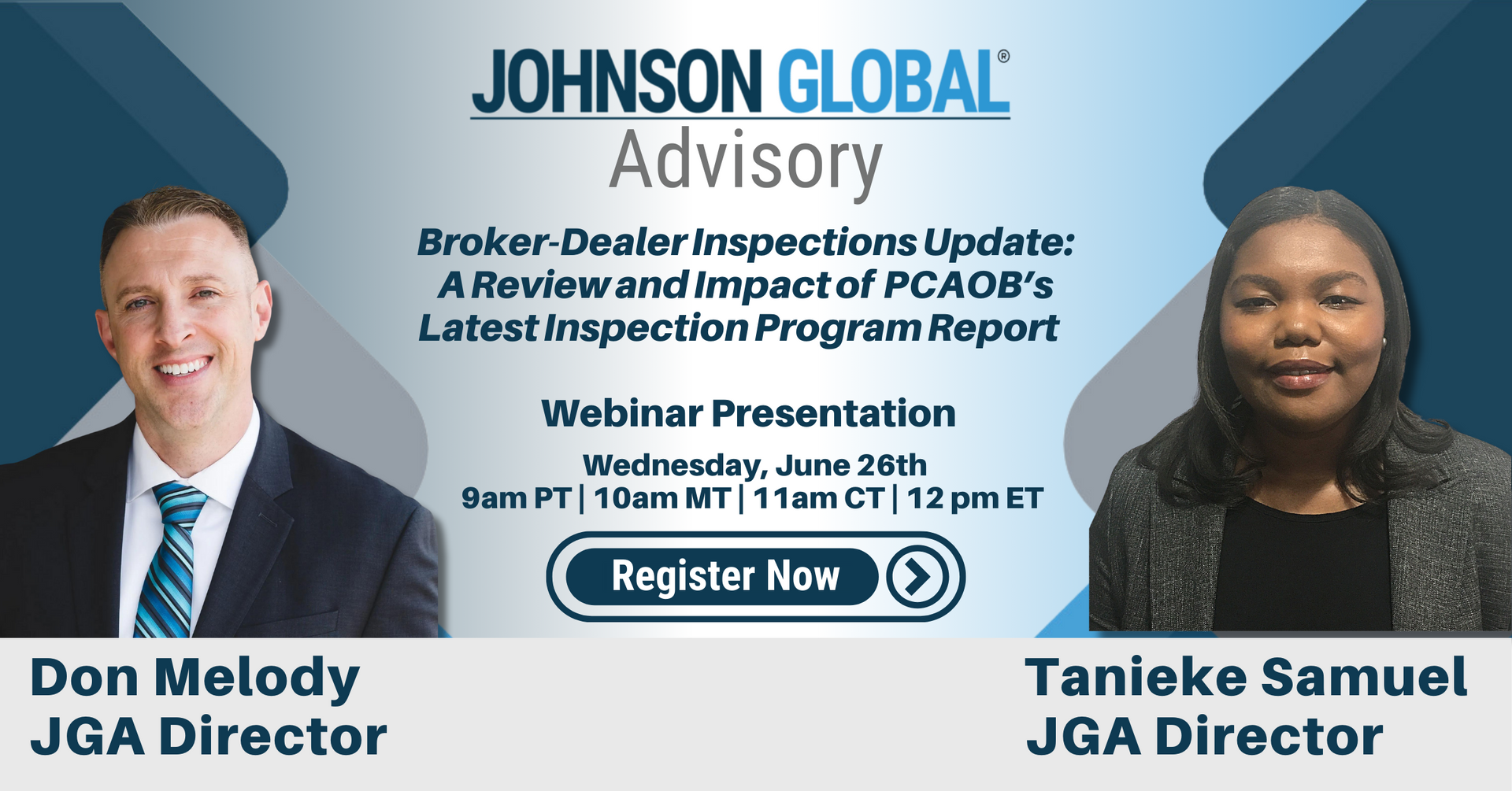



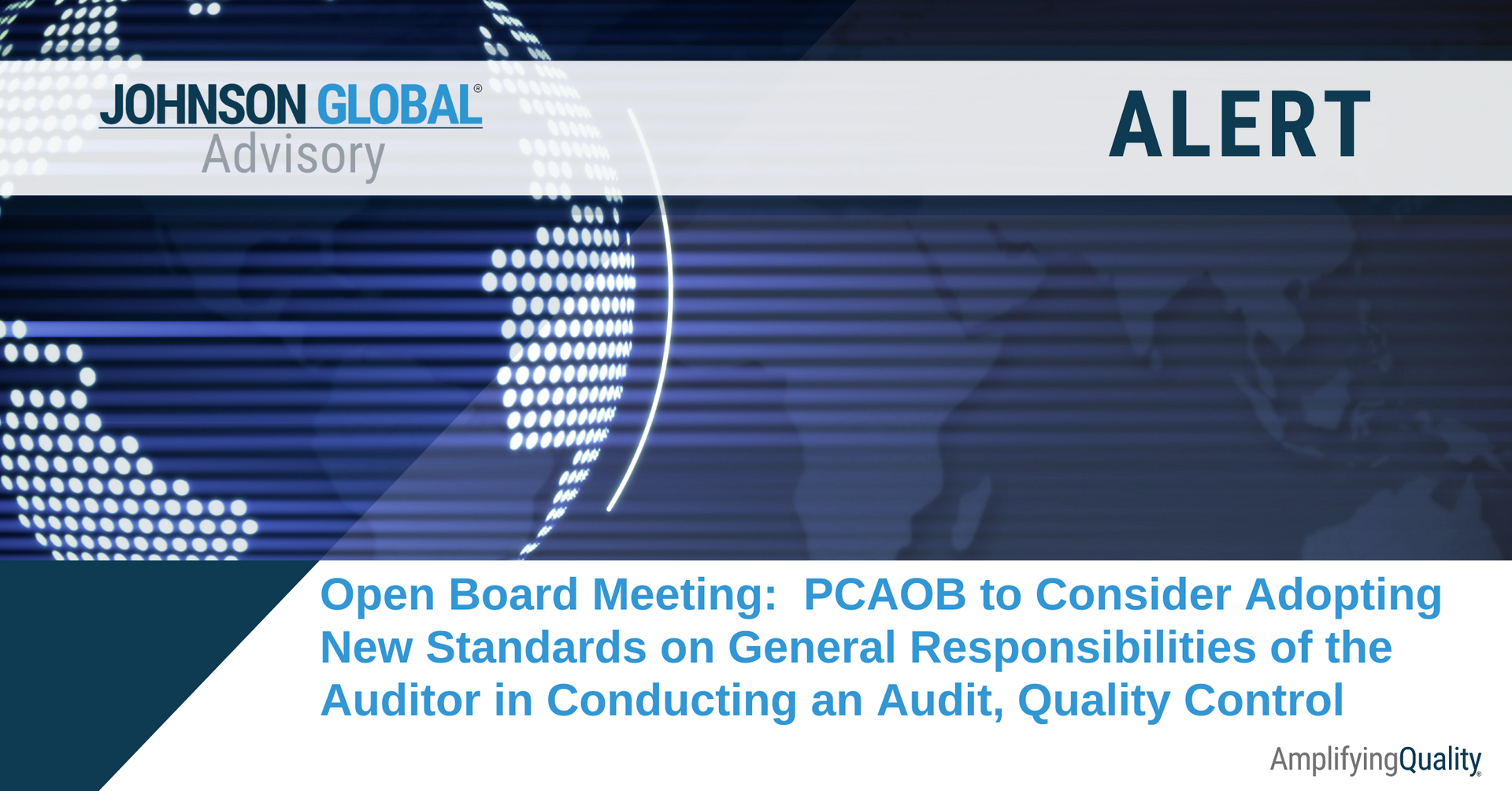
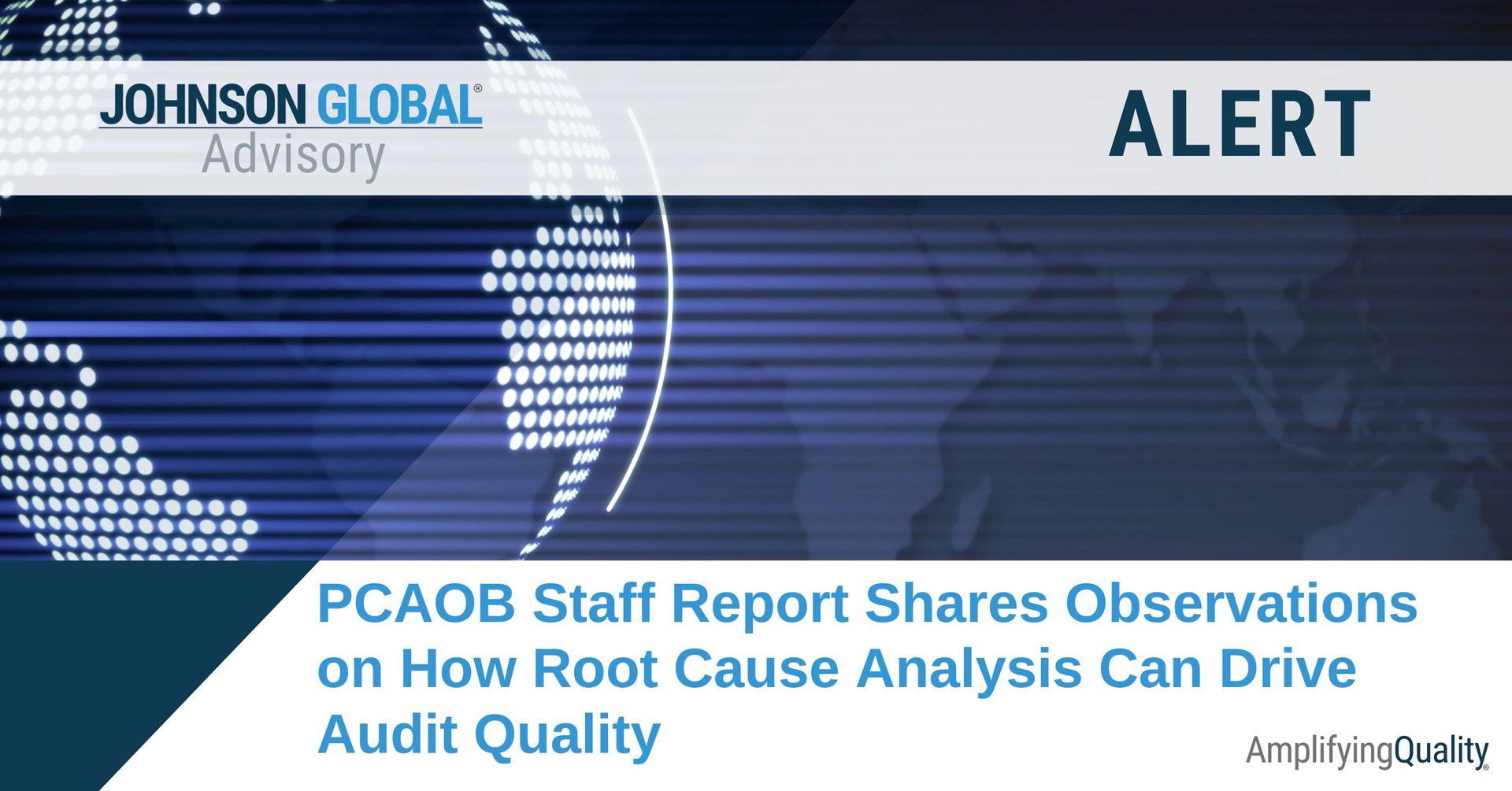


Johnson Global Advisory
700 Flower Street #1000
Los Angeles, CA 90017
USA
+1 (702) 848-7084
